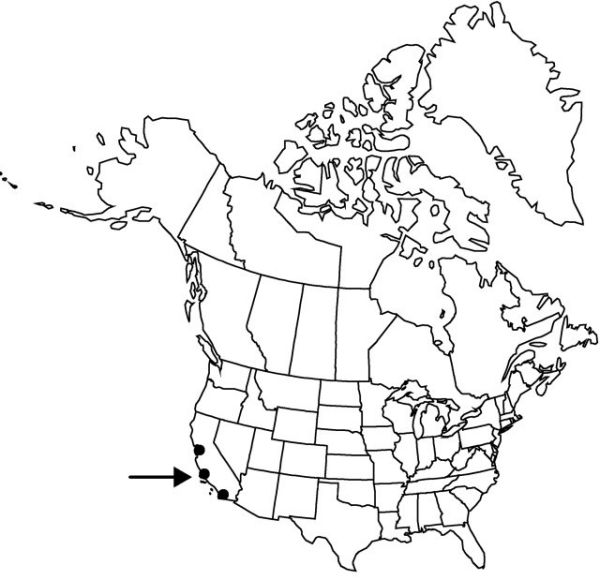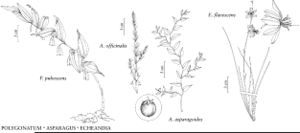Asparagus asparagoides
Rep. Bot. Exch. Club Soc. Brit. Isles 3: 414. 1914.
Common names: Smilax asparagus
Basionym: Medeola asparagoides Linnaeus Sp. Pl. 1: 339. 1753
Revision as of 20:49, 16 December 2019 by FNA>Volume Importer
Vines, erect to deflexed, branching, climbing to 1.5 m; roots tuberous. Stems slender, to 3 m, wiry, smooth to slightly ridged; cladophylls solitary at each node, broadly lanceolate to ovate, 15–35 × 5–15(–20) mm, leathery, with 20–24 parallel veins. Leaves membranous, 1–2 mm; blade broadly lanceolate. Inflorescences in axillary umbels, 1–3(–4)-flowered. Flowers bisexual; perianth campanulate; tepals white, with green median stripe abaxially, 5–7 × 1–1.5 mm; pedicel 5–8 mm, with hard, raised joint 1–3 mm above base. Berries red, 6–8 mm. Seeds 1–4(–6). 2n = 20.
Phenology: Flowering spring–summer.
Habitat: Waste places, open forests, roadsides
Elevation: 0–100 m
Distribution

Calif., s Africa.
Discussion
Asparagus asparagoides is cultivated as an ornamental and has naturalized locally in southern Europe.
Selected References
None.
Lower Taxa
None.
